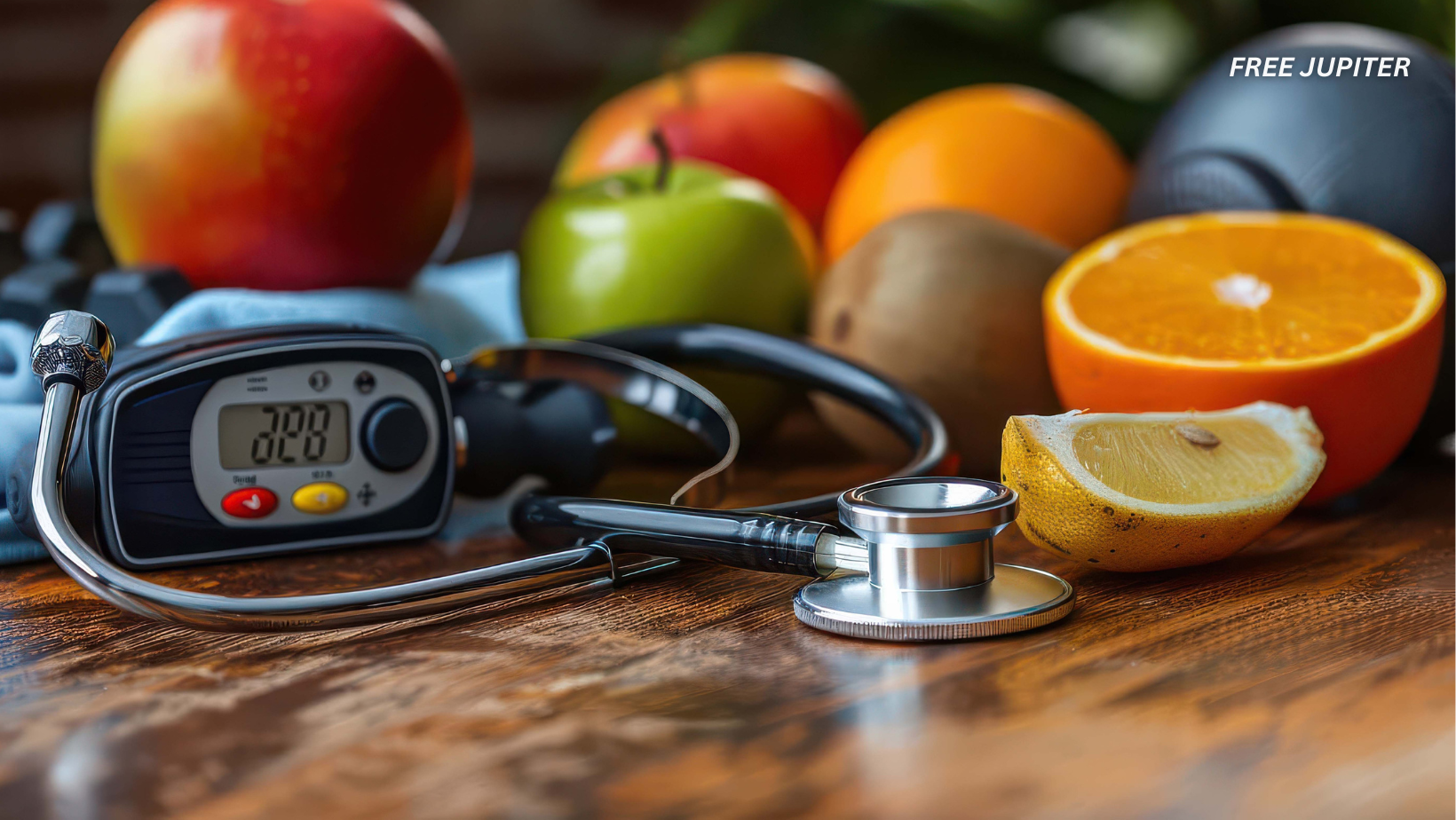When the topic of controlling blood pressure comes up, the usual advice often revolves around cutting back on salt and avoiding processed foods. While these steps are important, the story doesn’t end there. A truly heart-friendly diet involves a colorful array of foods that actively support healthy blood pressure levels through their rich nutrient profiles. One well-known approach, the DASH diet (Dietary Approaches to Stop Hypertension), showcases this beautifully by encouraging plenty of fruits, vegetables, low-fat dairy, whole grains, and lean proteins.
But what makes these foods so special? Experts emphasize that key minerals like calcium, magnesium, and potassium, along with fiber and protein, play crucial roles in maintaining the elasticity and function of blood vessels, balancing fluids, and regulating the heart’s workload. Let’s dive deeper into 20 foods that experts recommend for naturally supporting healthy blood pressure-and how you can enjoy them every day.
1. Low-Fat Yogurt: A Creamy Calcium Champion
Yogurt, especially the low-fat or fat-free varieties, is a fantastic source of calcium-a mineral essential for blood vessel contraction and relaxation. Calcium helps your arteries stay flexible and responsive, which is vital for healthy blood pressure. Beyond calcium, yogurt also provides potassium and protein, nutrients that contribute to overall cardiovascular health.
2. Bananas: Nature’s Potassium Powerhouse
Bananas are well-known for their potassium content, with a medium banana delivering roughly 420 milligrams-about 9% of the daily recommended intake. Potassium is a superstar mineral that helps flush excess sodium from the body and relaxes blood vessel walls, which can ease pressure on your heart.
Pro tip: When bananas get too ripe, peel and freeze them for smoothies or homemade frozen treats. Their natural sweetness means you won’t need to add sugar.
3. Berries: Tiny Antioxidant Warriors
Blueberries, strawberries, and raspberries are bursting with flavonoids-antioxidants that help improve the function of your blood vessels by increasing nitric oxide levels. Nitric oxide is a gas that relaxes the inner muscles of your blood vessels, causing them to widen and lower blood pressure.
Fun fact: Even a small daily serving of blueberries (less than an ounce) has been linked to significant reductions in blood pressure, according to research.
Read more: 8 Everyday Drinks That Are Surprisingly High in Magnesium
4. Leafy Greens: The Green Giants of Heart Health
Spinach, kale, collard greens, arugula, Swiss chard, and beet greens are packed with potassium and magnesium, two minerals that work together to regulate blood pressure. These greens also provide fiber and antioxidants, making them a triple threat for cardiovascular support.
Serving idea: Don’t limit greens to salads-blend them into smoothies, sauté them with garlic, or add them to omelets for a nutrient-packed meal.
5. Beets: The Vibrant Blood Flow Boosters
Beets are rich in dietary nitrates, which your body converts into nitric oxide. This molecule relaxes and dilates blood vessels, improving blood flow and reducing blood pressure. Studies have shown that drinking beetroot juice can lower systolic blood pressure by 4 to 5 mmHg-a meaningful change for heart health.
Tip: When buying beet juice, choose varieties without added sugars to maximize benefits.
6. Garlic: The Flavorful Blood Pressure Ally
Garlic contains allicin, a sulfur compound released when garlic is chopped or crushed. Allicin has been studied for its ability to relax blood vessels and reduce blood pressure. While garlic supplements are popular, fresh garlic in cooking is the best way to enjoy its benefits.
Cooking idea: Add minced garlic to stir-fries, soups, or roasted vegetables for a flavorful and heart-healthy boost.
7. Sweet Potatoes: The Colorful Nutrient Bomb
Sweet potatoes are rich in potassium, magnesium, and fiber-all of which contribute to heart health. Their natural sweetness and creamy texture make them a versatile addition to many dishes.
Preparation tips: Bake, roast, or mash sweet potatoes with a dash of cinnamon or herbs for a comforting side dish.
8. Oatmeal: The Classic Whole Grain
Oats are a high-fiber whole grain that helps reduce cholesterol and supports healthy blood pressure. Consuming whole grains like oatmeal regularly has been linked to a 15% reduction in heart disease risk.
Breakfast idea: Cook a warm bowl of oatmeal and top it with chopped nuts, fresh fruit, and a drizzle of honey for a balanced start.
9. Salmon: The Omega-3 Rich Fish
Fatty fish such as salmon and mackerel are rich in omega-3 fatty acids, which reduce inflammation and improve blood vessel function. Omega-3s also help regulate blood pressure by promoting relaxation of blood vessels.
Serving suggestion: Grill or bake salmon with herbs and lemon for a heart-healthy main course.
10. Avocado: The Creamy Mineral Mix
Avocados provide a generous dose of potassium, magnesium, and heart-healthy fats. One avocado contains about 975 milligrams of potassium-roughly a quarter of your daily needs.
Try this: Spread mashed avocado on whole-grain toast or add slices to salads and sandwiches.
11. Quinoa: The Protein-Packed Grain Alternative
Quinoa is a nutrient-dense grain rich in magnesium, protein, and fiber. Magnesium helps relax blood vessels and supports healthy blood pressure, while protein and fiber aid in overall metabolic health.
Cooking tip: Use quinoa as a base for salads or as a side dish instead of rice or pasta.
Read more: Study Finds Popular Blood Pressure Medication Extends Lifespan and Slows Aging in Animal Models
12. Broccoli: The Cruciferous Powerhouse
Broccoli and other cruciferous vegetables provide calcium, potassium, magnesium, and vitamin C. These nutrients work synergistically to support healthy blood pressure and reduce inflammation.
How to eat: Steam, roast, or stir-fry broccoli with garlic and olive oil for a tasty side.
13. Peaches and Nectarines: Sweet Potassium Sources
These juicy stone fruits offer a sweet way to add potassium to your diet. A large peach or nectarine provides about 10% of your daily potassium needs, helping balance fluids and ease blood pressure.
Snack idea: Enjoy fresh peaches or nectarines on their own or sliced into yogurt or cereal.
14. Kiwi: The Tangy Antioxidant Boost
Kiwifruit is packed with antioxidants and potassium. Studies have shown that eating three kiwis a day can lead to significant reductions in blood pressure, making it a tasty and effective addition to your diet.
Serving suggestion: Slice kiwi into fruit salads or enjoy it solo for a refreshing snack.
15. Red Bell Peppers: The Colorful Crunch
Red bell peppers are rich in potassium, fiber, vitamin C, and vitamin A. These nutrients help reduce blood pressure and support immune function.
Snack tip: Slice red peppers and dip them in hummus or guacamole for a crunchy, heart-healthy snack.
16. Pumpkin Seeds: The Mineral-Rich Snack
Pumpkin seeds are a great source of magnesium and zinc, minerals that help regulate blood pressure. However, many store-bought versions are salted, so opt for unsalted seeds or roast your own at home.
How to enjoy: Sprinkle pumpkin seeds on salads, oatmeal, or eat them as a snack.
17. Dark Chocolate: The Sweet Heart Helper
Dark chocolate that’s rich in flavonols can improve blood vessel function and lower blood pressure. Choose chocolate with at least 70% cocoa content and enjoy in moderation.
Fun fact: A small piece of dark chocolate can satisfy your sweet tooth while supporting heart health.
18. Pistachios: The Nutty Relaxers
Pistachios have been shown to reduce blood vessel tightening and heart rate, both of which can lower blood pressure. They’re a tasty, convenient snack when eaten in moderation.
Serving suggestion: Snack on a handful of unsalted pistachios or add them to salads and grain bowls.
19. Pomegranate Juice: The Antioxidant Elixir
Pomegranate juice is loaded with antioxidants that may help lower blood pressure. Studies suggest that regular consumption can have a positive effect on cardiovascular health.
Tip: Choose 100% pure pomegranate juice without added sugars to maximize benefits.
20. Olive Oil: The Liquid Gold
Olive oil, especially extra virgin, is rich in polyphenols-plant compounds that support blood vessel health and reduce inflammation. Using olive oil instead of butter or other fats can help lower blood pressure and reduce disease risk.
Cooking idea: Use olive oil for sautéing vegetables, drizzling over salads, or dipping bread.
Read more: This Simple Exercise Lowers Blood Pressure as Effectively as Pills, Study Finds
Lifestyle Habits That Complement Your Food Choices
While these foods are powerful allies, managing blood pressure is a holistic endeavor. Incorporate these habits alongside your dietary improvements:
- Stay active: Aim for at least 150 minutes of moderate exercise weekly. Walking, cycling, swimming, or dancing all count.
- Manage stress: Try meditation, yoga, or simple breathing exercises to keep stress hormones in check.
- Limit alcohol: Moderate consumption supports healthy blood pressure; excess can have the opposite effect.
- Avoid smoking: Tobacco damages blood vessels and raises blood pressure.
- Maintain a healthy weight: Even modest weight loss can significantly improve blood pressure.
Wrapping It Up: A Heart-Healthy Plate Is Within Reach
No single food will magically fix blood pressure overnight, but a consistent diet rich in these nutrient-packed options can make a meaningful difference over time. The beauty of this approach is that it’s delicious, varied, and sustainable.
From creamy yogurts to vibrant berries, from savory garlic to sweet peaches, these foods bring both flavor and function to your meals. Pair them with positive lifestyle habits, and you’re well on your way to supporting a healthy heart and balanced blood pressure.
So next time you plan your grocery list or meal, think of these foods as your tasty, natural allies in heart health. Your body-and your palate-will thank you.
If you’d like, I can also provide recipe ideas or meal plans incorporating these foods!










